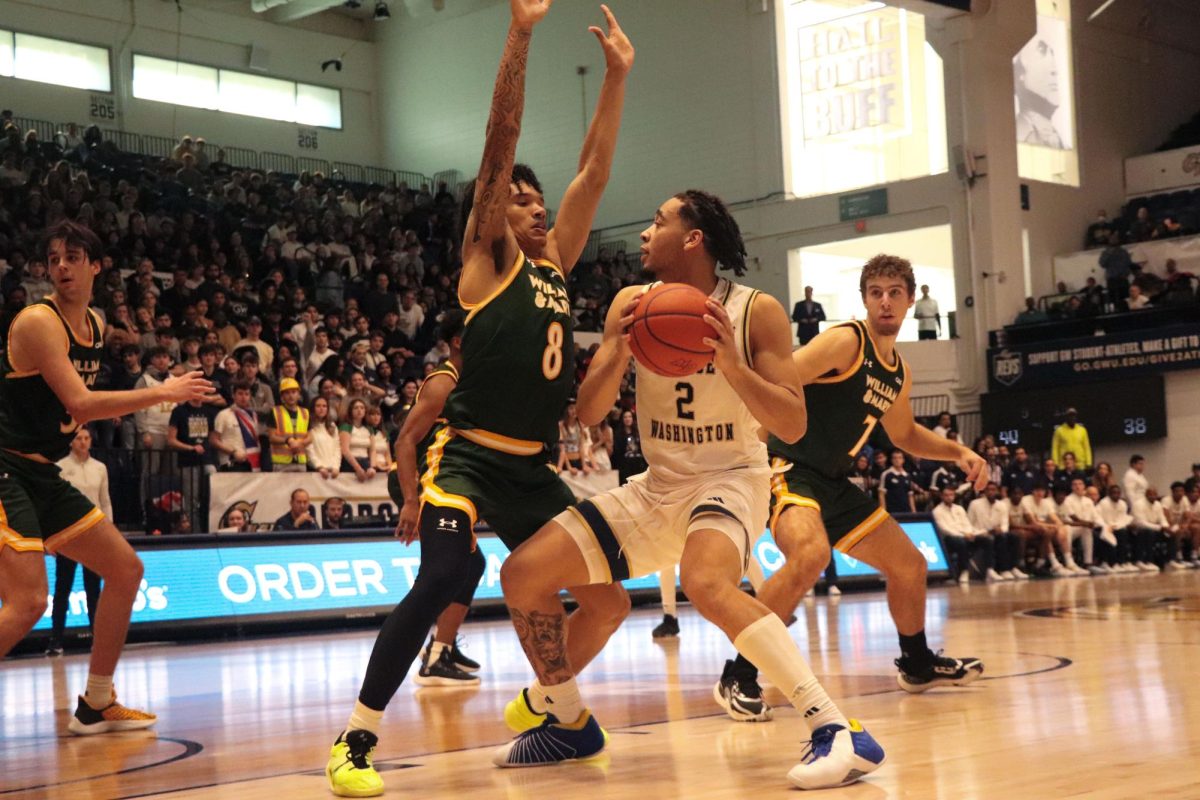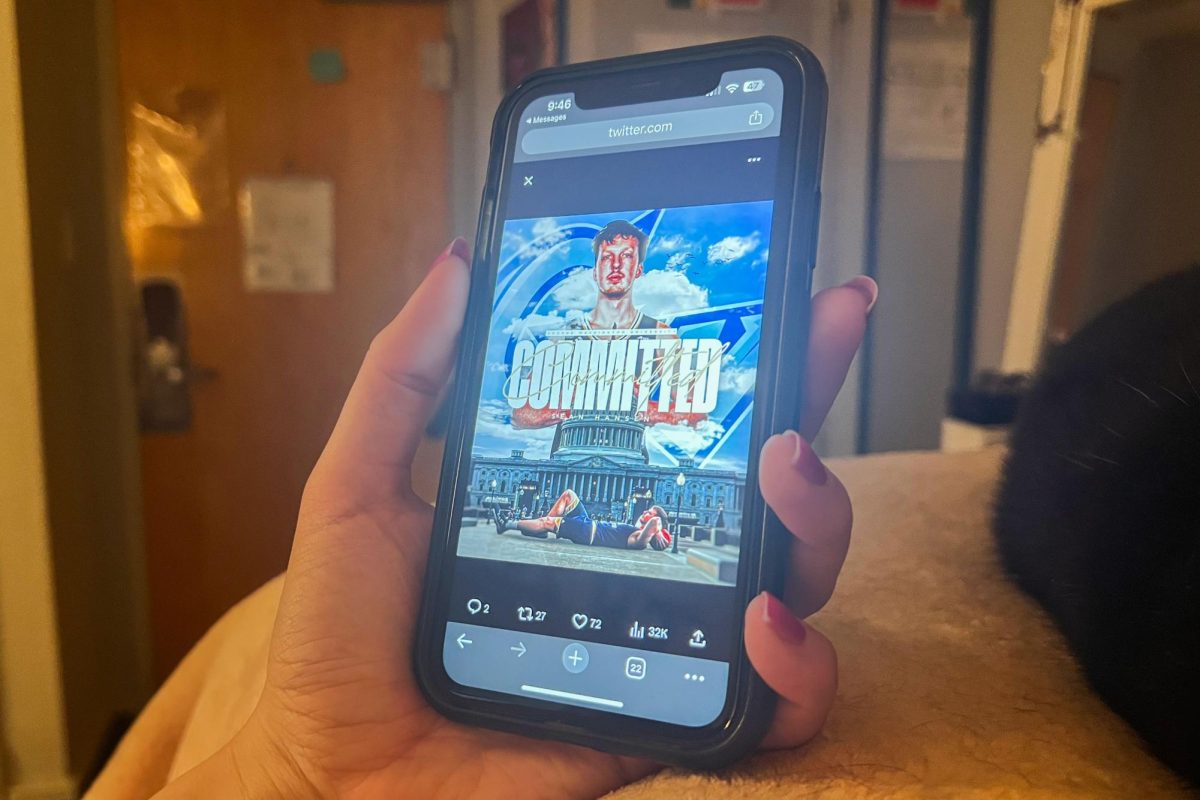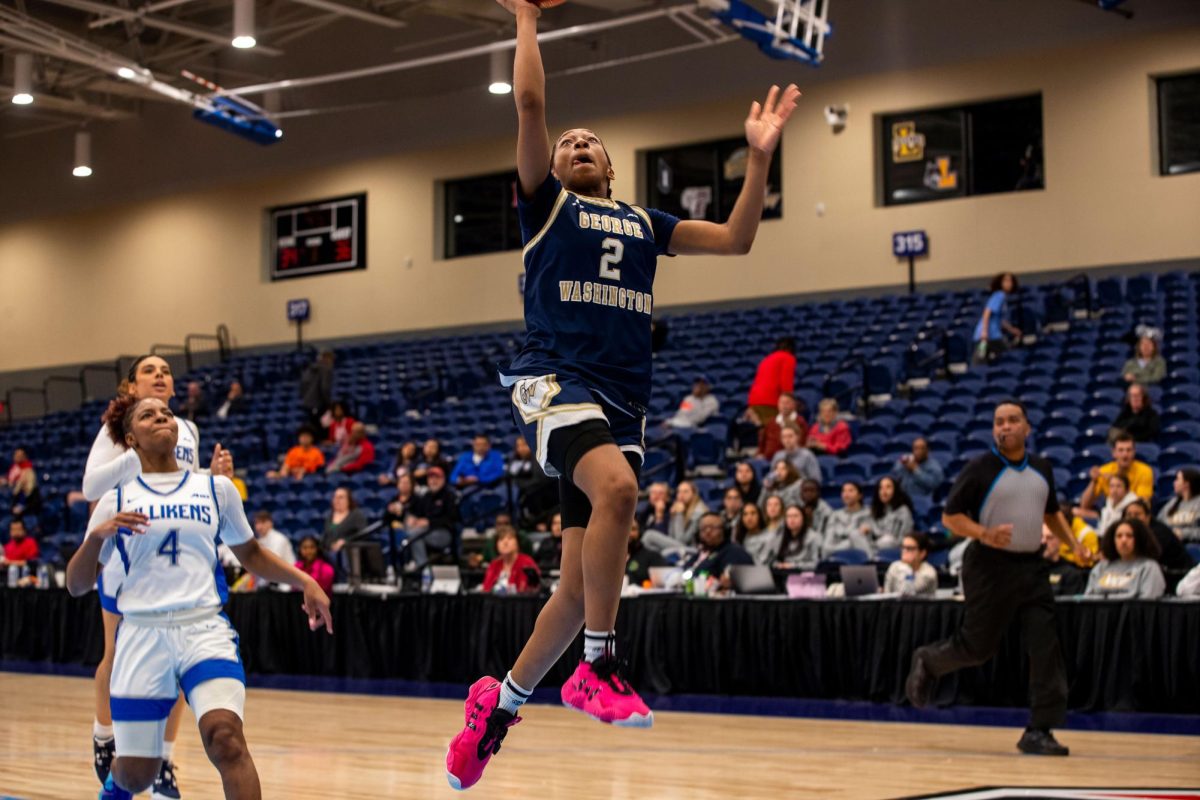Women’s water polo alumnae issued a letter to University President Thomas LeBlanc and Athletic Director Tanya Vogel condemning the July 31 decision to eliminate the program.
The University announced last month that it will cut women’s water polo, men’s and women’s squash, men’s indoor track and field, men’s rowing, men’s tennis and sailing at the conclusion of the 2020-21 season. The alumni called for greater transparency and communication from the University about why the programs would be terminated.
“We find it necessary to voice some deep-seeded concerns about the lack of transparency regarding the process, and the administration’s admitted inability – or unwillingness – to quantify the cost-savings of this decision,” the letter states.
The letter asked for the GW administration to release any and all data and documents used to make the decision, host a town hall to field alumni’s questions and reconsider its decision to remove women’s water polo and the other six programs.
Former student-athletes said they were disappointed and frustrated with the University’s decision to cut the seven programs. Women’s water polo alumnae aren’t the first alumni group to push back against the University. Men’s and women’s squash alumni penned an open letter to officials and launched a petition to save the programs.
The letter states that the alumnae found it “incredulous” that the University did not announce its review of the department or allow alumnae or other community members the ability to participate in the review process.
It added that the University should have revealed the weight the nine considerations used in the review carried. Some of the considerations the University used to make its decision included NCAA Division I sponsorship, history of the sport at GW and expense savings.
The third issue the alumnae group outlined with GW’s elimination of the teams was the University’s inability to “quantify future cost savings associated with eliminating the seven programs.”
Athletic department spokesman Brian Sereno declined to comment on how much money the University would be saving by cutting the programs, and he deferred to the Frequently Asked Questions page of the announcement. The FAQ page said savings can’t be “tabulated in one total sum,” but will come gradually as scholarships expire and expenses are saved by eliminating travel, compensation and operational costs.
The letter adds that most college sports are not financial burdens to the University but “at worst” break even. It added that sports like women’s water polo make money for the school because a majority of the athletes are paying tuition.
“With the team holding just over two scholarships and a very small operating budget of approximately $200,000, the tuition paid by the players far exceeds the cost of running the team,” the letter states. “Our estimates show a 4:1 ratio on income vs. expense, and we welcome the opportunity to compare this to the University’s analysis.”
The letter also addressed how alumnae were “disturbed” by the University’s communication with alumni. The letter states that administrators showed a lack of respect by responding to concerns with “pre-approved statements,” and alumnae will begin pulling donations if communication doesn’t improve and the sports remain on the chopping block.
“This is also how they most often request donations from us,” the letter states. “Donations that, we can assure you, will only decrease after the impersonal way the administration announced the elimination of the women’s water polo program, as well as the other six teams it cut at the same time.”
To demonstrate the sport has “real community support,” the women’s water polo alumnae started a pledge form where community members can pledge donations to the program if it remains at the varsity level.
Despite the prospect of losing varsity status after the 2020-21 season, women’s water polo alumnae said in the letter they offer “unwavering support” to the current student-athletes and coaches and will continue being the program’s “cheering squad.”




